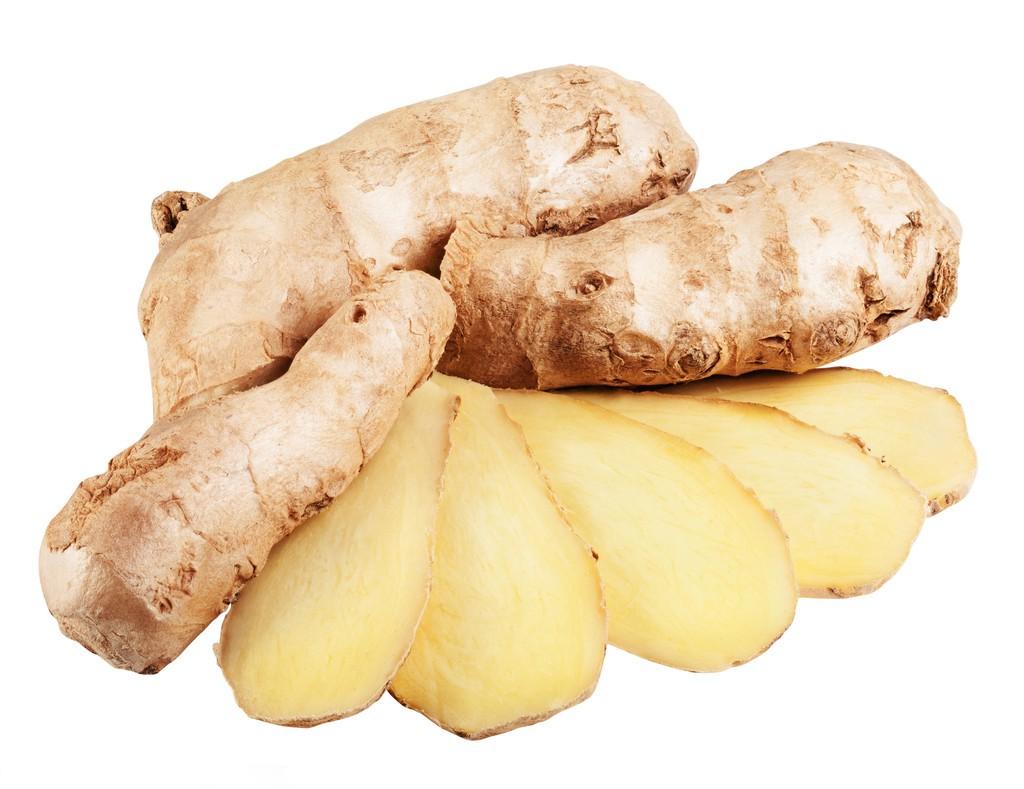Ginger root contains 115 different chemical components, but the therapeutic benefits come from gingerols, the oily resin from the root that acts as a highly potent antioxidant and anti-inflammatory agent. Ginger essential oil is also made up of about 90 percent sesquiterpenes, which are defensive agents that have antibacterial and anti-inflammatory properties.
The bioactive ingredients in ginger essential oil, especially gingerol, have been thoroughly evaluated clinically, and research suggests that when used on a regular basis, ginger has the ability to improve an array of health conditions and unlocks countless essential oil uses and benefits.
Here’s a rundown of the top ginger essential oils benefits:
1. Treats Upset Stomach and Supports Digestion
Ginger essential oil is one of the best natural remedies for colic, indigestion, diarrhea, spasms, stomachaches and even vomiting. Ginger oil is also effective as a nausea natural treatment.
A 2015 animal study published in the Journal of Basic and Clinical Physiology and Pharmacology evaluated the gastroprotective activity of ginger essential oil in rats. Ethanol was used to induce gastric ulcer in Wistar rats.
The ginger essential oil treatment inhibited the ulcer by 85 percent. Examinations showed that ethanol-induced lesions, such as necrosis, erosion and hemorrhage of the stomach wall, were significantly reduced after the oral administration of the essential oil.
A scientific review published in Evidence-Based Complimentary and Alternative Medicine analyzed the efficacy of essential oils in reducing stress and nausea after surgical procedures. When ginger essential oil was inhaled, it was effective in reducing nausea and the requirement for nausea-reducing medications after surgery.
Ginger essential oil also demonstrated analgesic activity for a limited time — it helped relieve pain immediately after surgery.
2. Helps Infections Heal
Ginger essential oil works as an antiseptic agent that kills infections caused by microorganisms and bacteria. This includes intestinal infections, bacterial dysentery and food poisoning.
It has also proved in lab studies to have antifungal properties.
An in vitro study published in the Asian Pacific Journal of Tropical Diseases found that ginger essential oil compounds were effective against Escherichia coli, Bacillus subtilis and Staphylococcus aureus. Ginger oil was also able to inhibit the growth of Candida albicans.
3. Aids Respiratory Problems
Ginger essential oil removes mucus from the throat and lungs, and it’s known as natural remedy for colds, the flu, coughs, asthma, bronchitis and also loss of breath. Because it’s an expectorant, ginger essential oil signals the body to increase the amount of secretions in the respiratory tract, which lubricates the irritated area.
Studies have shown that ginger essential oil serves as a natural treatment option for asthma patients.
Asthma is a respiratory illness that causes bronchial muscle spasms, swelling of lung lining and increased mucus production. This leads to the inability to breathe easily.
It can be caused by pollution, obesity, infections, allergies, exercise, stress or hormonal imbalances. Because of ginger essential oil’s anti-inflammatory properties, it reduces swelling in the lungs and helps open airways.
A study conducted by researchers at Columbia University Medical Center and the London School of Medicine and Dentistry found that ginger and its active components caused a significant and rapid relaxation of human airway smooth muscles. Researchers concluded that compounds found in ginger may provide a therapeutic option for patients with asthma and other airway diseases either alone or in combination with other accepted therapeutics, such as beta2-agonists.
Wendy
Tel:+8618779684759
Email:zx-wendy@jxzxbt.com
Whatsapp:+8618779684759
QQ:3428654534
Skype:+8618779684759
Post time: Jul-31-2023


